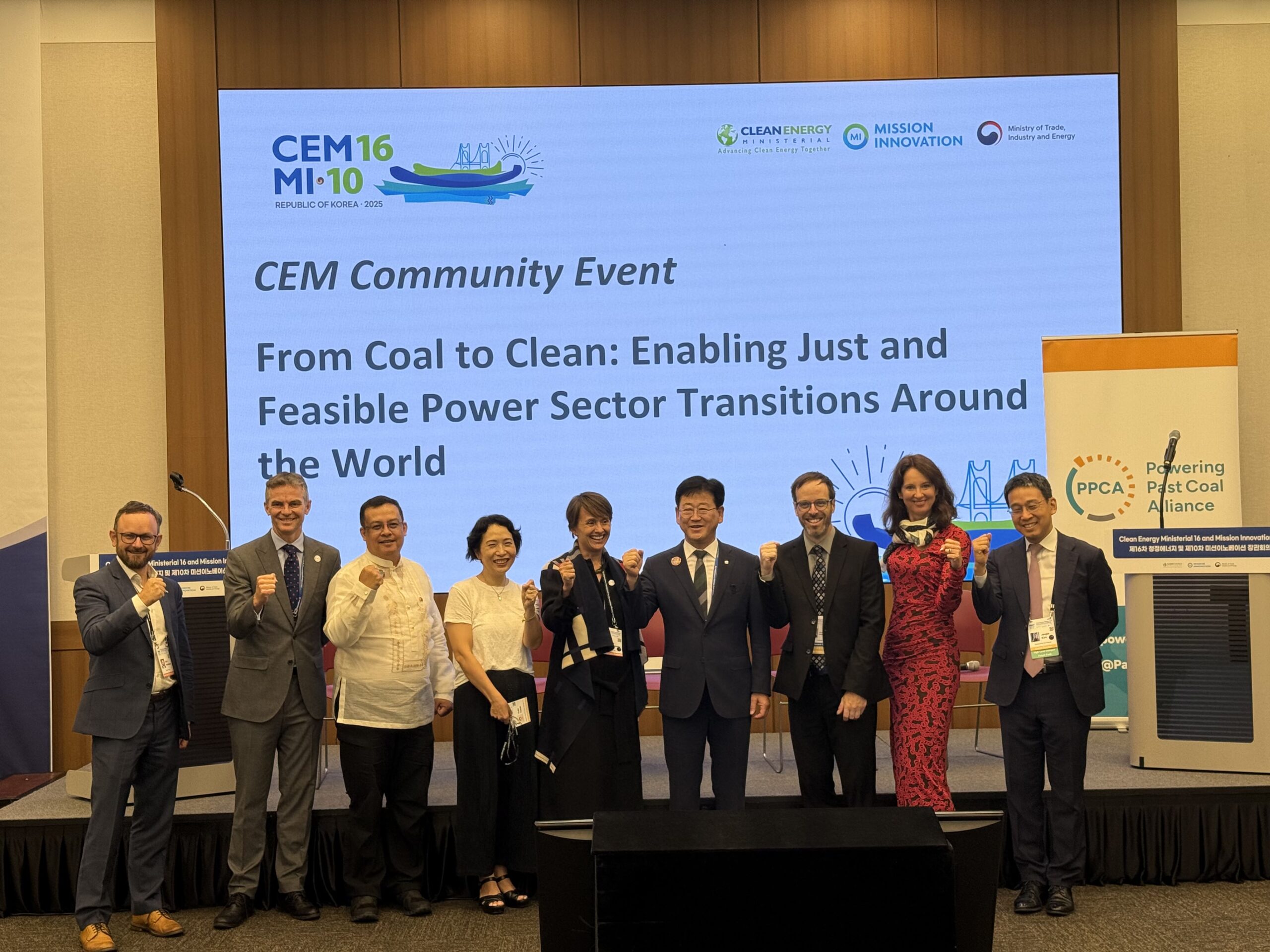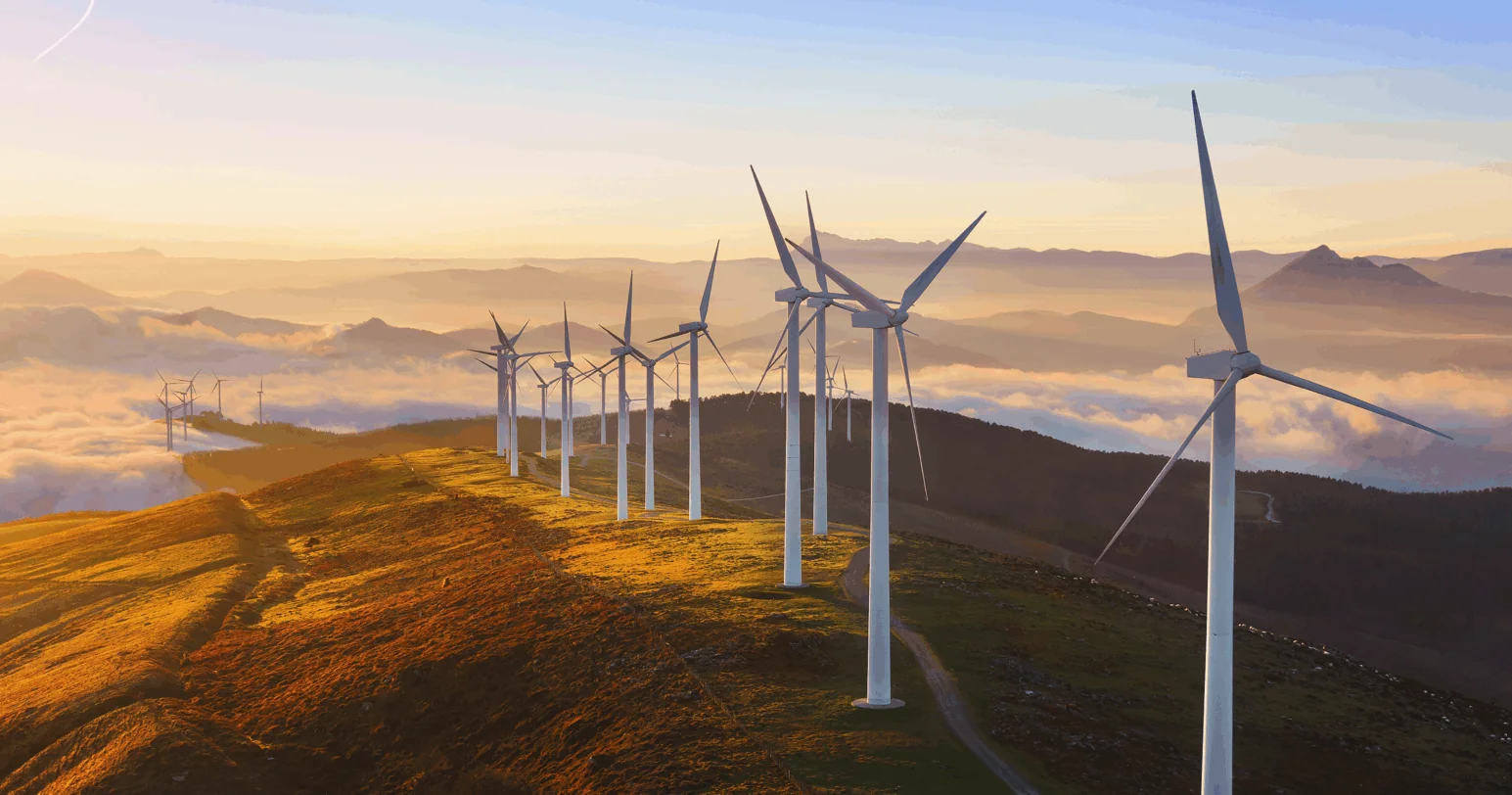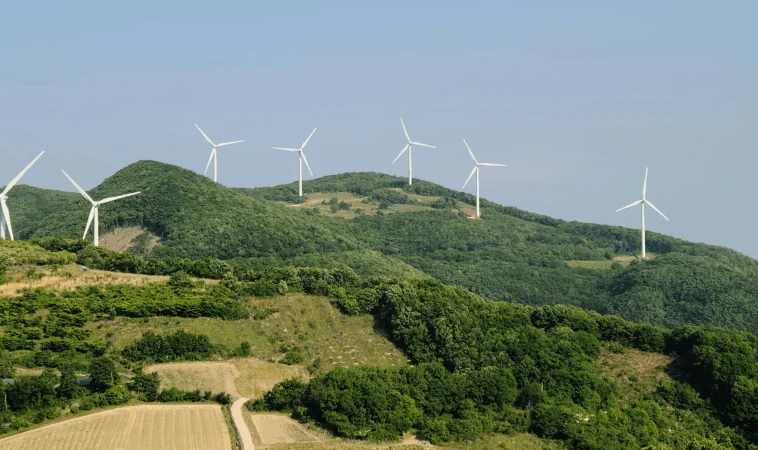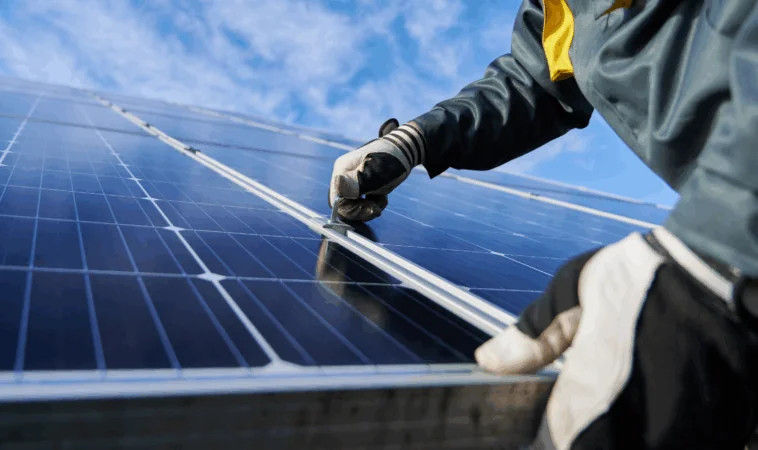
At the 16th Clean Energy Ministerial (CEM16) held in Busan, Republic of Korea (RoK) on 25th August 2025, representatives of governments and international organisations explored the solutions required for accelerating coal-to-clean transitions in the Asia-Pacific region. Participants highlighted the importance of clear government commitments, strong signals from business in support of ambitious government policy and the many social and economic benefits a move to clean energy can unlock.
Republic of Korea’s President Lee’s recent manifesto pledge to phase out unabated coal power by 2040 is creating significant momentum for the energy transition in the country. Therefore, CEM16 taking place in Busan this year was an ideal venue for the ‘From Coal to Clean’ side event, co-hosted by the PPCA and Korean NGO, Solutions for Our Climate.
The event outlined the benefits of coal-to-clean transitions, citing expert analysis and sharing inspiring coal phase-out stories from around the world. Speakers included Selwin Hart, UN Special Adviser on Climate Change; Kim Jungho MP, Korean National Assembly member and Felix William Fuentebella, Undersecretary in the Department of Energy, the Philippines; alongside representatives from the UK, Canada, Indonesia and the European Commission. Here’s what we learnt.
Coal-to-clean transitions can help revitalise economies and boost energy security
Speaking at the event, Selwin Hart stated that despite the Asia-Pacific region representing 80% of global coal demand, it was here that renewables were ‘advancing fastest in the clean energy revolution’. The shift to renewables, he noted, was a momentous opportunity for enhancing economic growth and improving public health.
In agreement was Korean National Assembly member Kim Jungho, who outlined how the country’s move from coal to clean was not just about climate goals, but also ‘economic revitalisation’. Kim noted that with 60% of the Republic of Korea’s power currently coming from fossil fuels, its heavily industrialised and export-focused economy risked becoming uncompetitive as global markets shifted to low carbon products. As a result, the transition away from coal to renewables was a new ‘growth pillar’ of the Korean economy, helping to add new jobs as well as reinforce the competitiveness of Korean businesses. Kim added that, as a G20 and OECD member, the Republic of Korea is well-positioned to enhance its climate leadership credentials, acting as a bridge between developed and developing economies.
Undersecretary Felix William Fuentebella outlined how, for the Philippines, the transition from unabated coal power was helping to improve the country’s energy security. Fuentebella explained that the Philippines has relied too much on costly imported fossil fuels in the past and was now choosing to embrace its’ abundant renewable energy potential. He added that to meet the Philippines’ transition targets renewable deployment, grid improvements, and coal retirements needed to be accelerated.

Clear government signals highlighted as crucial steps to delivering coal-to-clean transitions
Participants also highlighted a number of significant challenges to delivering coal-to-clean transitions in the Asia-Pacific region including meeting rising energy demand, retiring young coal plants early, protecting affected workers and communities, raising enough finance, and upgrading grids. It was discussed that continuing to invest in and use unabated coal power will mean relying on a more expensive source of energy compared to wind and solar, increasing the risk of stranded assets, and delaying worker support and the energy transition. Speakers agreed that to tackle these challenges, clear and sustained government commitments and plans were key.
Kim Jungho MP referred to the President’s manifesto pledge to set a 2040 coal phase-out date and emphasised that clear phase-out commitments give policy clarity which help attract investment in the energy transition. Undersecretary Felix William Fuentebella gave another example of such a signal when he discussed the Philippines’ moratorium on new coal, made in 2020. Representatives from finance and business sectors in attendance agreed, stressing that they are willing to support ambitious governments in delivering the transition, but the right policy signals reassure them that their investments are impactful.
Speakers at the event also identified other interventions that can help countries accelerate their coal-to-clean transition, including:
- Investing in grid modernisation to accommodate rapidly expanding renewable capacity,
- Deploying innovative financial mechanisms to retire coal plants early,
- Reforming markets to encourage renewable energy projects.
What’s next for the PPCA?
This period marks a critical moment to capitalise on the benefits of the world’s transition to renewable energy. Whilst the challenges are real, there are also plenty of effective solutions to overcome them, as evidenced by this event. As we approach the 10th anniversary of the Paris Agreement and COP30, the PPCA will be contributing to COP30’s Action Agenda, creating a solutions bank that brings together the latest best practise on accelerating coal-to-clean transitions around the world to deliver on the Global Stocktake.




